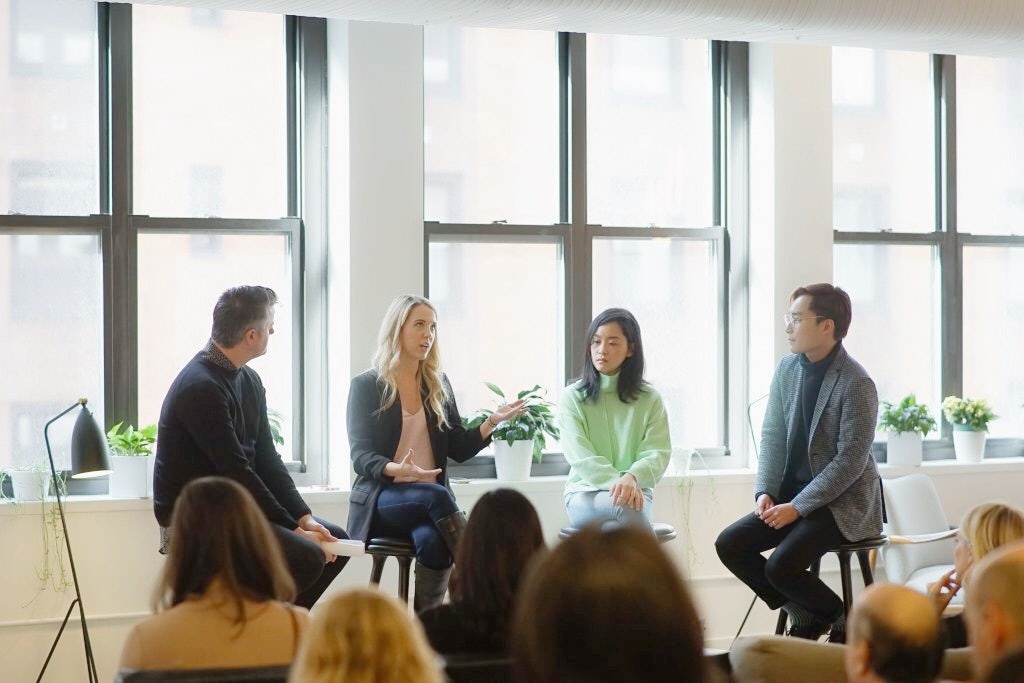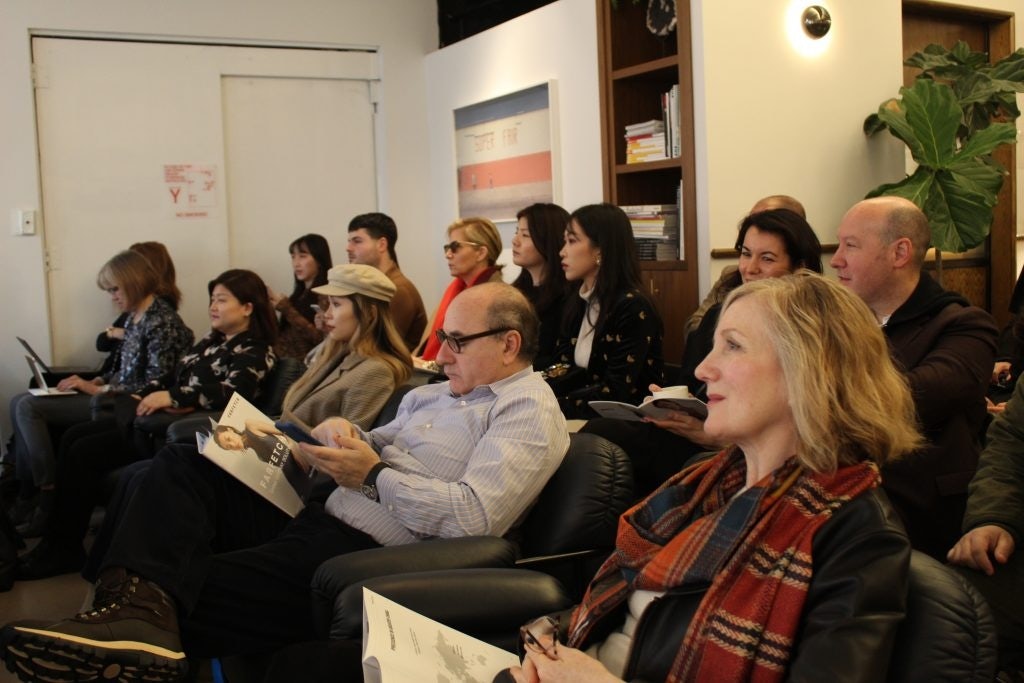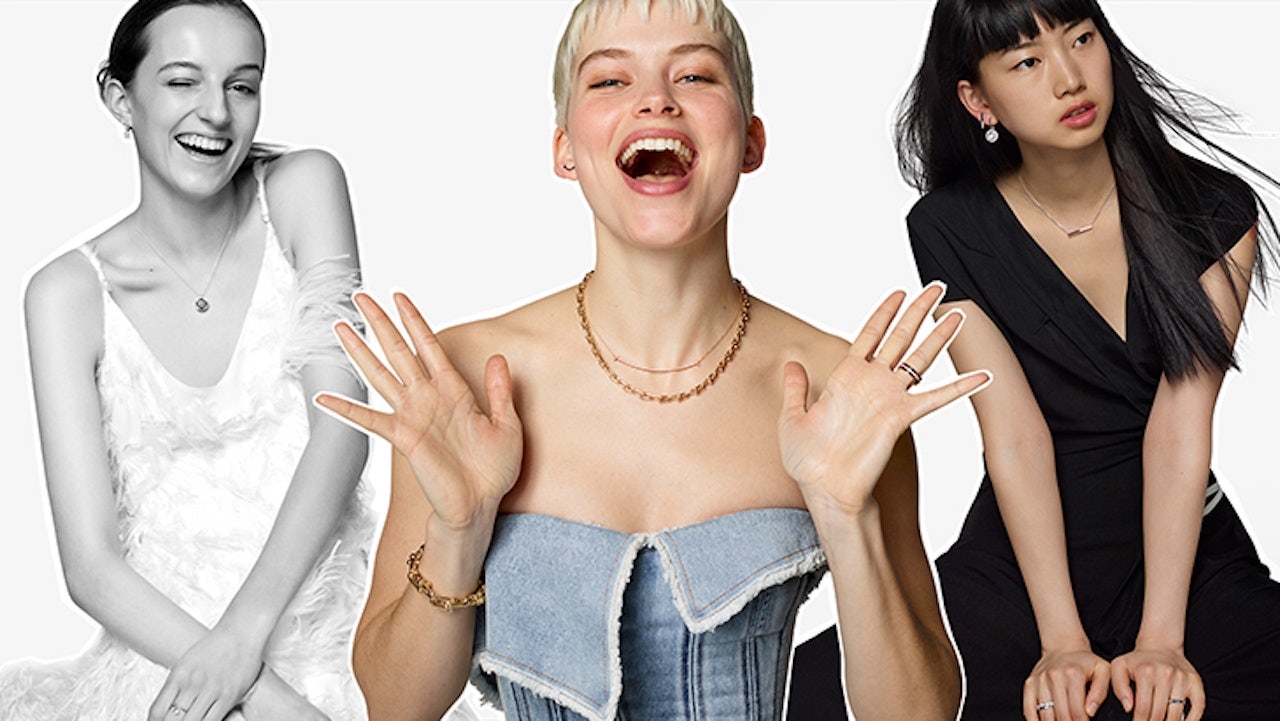Social commerce is not a buzzword but a lifestyle for shoppers in China. In the West, it’s more common to use e-commerce sites as the final stop when completing a purchase, but in China, e-commerce sites are a kaleidoscope where you can make new discoveries, acquire information, and socialize with your peers—hence social commerce.
And now, with Chinese luxury consumption flowing back to the Mainland, and growing concerns of a possible Chinese economic slowdown, brands and retailers are becoming more and more anxious, wondering how to gain a stronger foothold into this trillion-dollar industry.

With this question in mind, Jing Daily hosted its second CEO breakfast series yesterday, with an exclusive, invite-only group of industry players for a panel entitled, “Content and Commerce: Selling to Millennials.” It was moderated by Jeffery Fowler, President, North America at Farfetch, the global online luxury fashion platform. And joining the conversations were Lauren Hallanan, a China marketing expert, Yiling Pan, senior editor of Jing Daily, and Ray Ju, senior consultant of branding agency Labbrand.
Jeffery: Why content is a significant factor driving e-commerce in China?#
Lauren:#
In China, social media platforms have e-commerce functions and e-commerce platforms have social media functions. What I find here (U.S.) is that social media platforms like Instagram are much more regulated (you have to have a certain type of account to be able to tag the brand), and they put a lot of limits on the e-commerce functionalities. Also, they are worried about being too commercial. In China, people go to social media to research products, and they are frustrated if the product buying page is not linked.
Jeffery: Do you think Chinese consumers care whether it’s sponsored content or original?#
Yiling:#
Authenticity of influencers is becoming a bigger issue these days. Recently, I’ve discovered more consumers talking about why certain influencers didn’t reveal paid posts. So people may not care now, but that doesn’t mean they won’t care about it in the future—Chinese consumers are learning fast.
Lauren:#
If consumers know it’s sponsored, and if the influencer uses the product and actually has an opinion about it, then they don’t care.
Jeffery: What’s the distinction between a celebrity and influencer? Whose role is more effective under the context of social commerce? Who has a better ROI?#
Ray:#
There is a disparity among different generations and age groups in their celebrity/influencer preferences. For the more mature generation, certain celebrities can establish a sense of quality, aesthetics and credibility, but if you look at the younger generations, Gen-Z, they are highly influenced by the idol culture. They will buy all there merchandise. But in the middle, Millennials, they are sort of skeptical about celebrity endorsements, so influencers might be more effective (to them).

Lauren:#
This (distinction) changed a lot. Celebrities are traditionally more of a spokesperson. They create professional content, with beautiful, completely photoshopped images. But now we are seeing a trend of big celebrities self-creating content on Little Red Book—similar to an influencer approach. It’s like celebrities are coming down from their high status and turning into influencers. People find this (role switch) converts very well for sales, because they have the prestige and reputation, as a celebrity, and now the platform is feeding off celebrity type of content.
Yiling:#
I recall a conversation I had with a China contact for a luxury handbag company. She criticized another brand’s collaboration with Mr. Bags. She said: ‘you don’t know if it’s the product itself that’s popular, or it’s the influencer motivated people to buy.’ That’s what a lot of luxury brands in China are thinking about. Celebrity is still in a better position to push sales; influencer is very niche, but getting more expensive and their ROI is actually getting lower.
Jeffery: What about traditional media? They are still big names in China, do they hold influence and relevance in terms of driving sales?#
Yiling:#
So for traditional fashion publications, in China, they are trying very hard to stay relevant, as their profit and revenue are really slowing down. I remember back in 2017, for example, Vogue China sold some Stella McCartney products via a WeChat mini-program, which the editor-in-chief also promoted on her own social media accounts. I think they are making a great effort to drive sales by leveraging their great content and storytelling capabilities, though I don’t have data to prove how successful they are.
Ray:#
My view is a little more pessimistic. Traditional media does have a huge social media following, but the form of the content has dramatically changed — it’s an article on WeChat hosted by WeChat public account — but the problem is how to integrate that with brands. Whereas influencers started with that transparency: I am here to tell you what’s good, where to buy them.
Yiling:#
I think there is still hope for traditional media to catch up in the age when content is playing a big role. The level of professionalism of traditional media is different from influencers. For example, many former fashion editors have great style, but if you look at popular influencers, their styles are not as sophisticated.
Lauren:#
That’s why there are a lot of fashion editors who have quit traditional media and started their own social media accounts, and then become very popular because they have that background.
Jeffery: How do you see live streaming being used effectively by brands and retail channels to sell?#
Lauren:#
When it comes to live streaming, there are a lot of brands trying to host, but if it’s one-offs, is not gonna work because they missed the whole point of live streaming. Taobao has an ecosystem of live-streaming influencers, who actually work with brands. They will try products on, show it up close, model the details, and match it with different things. This type (of model) actually has been working very well, because the influencer has established an audience base who trust them. I think more brands will work with influencers instead of hosting their own events.
Ray:#
I think the whole allure of live streaming is that people are not just watching, but commenting and sending gifts, and the host is interacting with them the whole time. I am not seeing any luxury brands doing a lot on this, perhaps, because they are afraid to see bad comments. I also think what’s gonna bring real change is 5G technology, which is going to drastic changing live streaming, AR, VR — the product and experience.
Yiling:#
Recently I watched a live stream of Burberry’s London fashion. They are one of the first brands that embraced the “see now, fashion now” model [earlier], even they have some setback recently. People can watch the show and comment, and after the show, they can purchase the collection. This is where I see live streaming: as the starting point to tease consumer, arouse their interests in brands' products. They will think about the gorgeous runway show, and say, ‘Ooh, I can buy it!”
The interviews have been condensed and edited.


